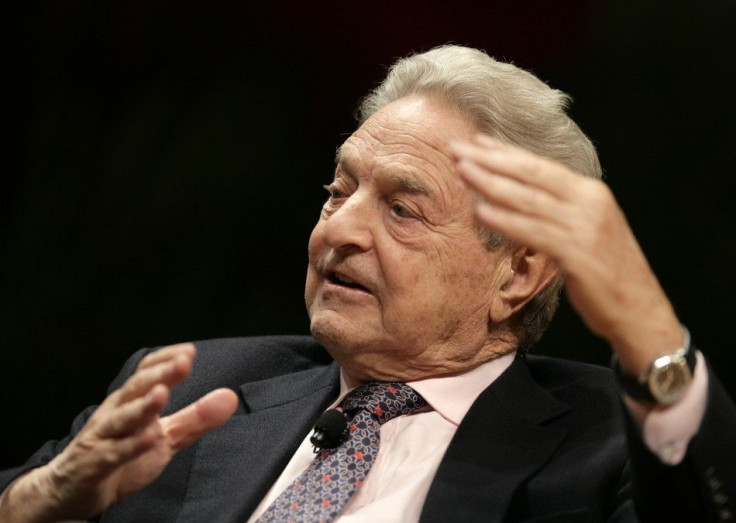George Soros: U.S. Double-Dip Recession More Likely Now
ANALYSIS

Billionaire Investor/Phillanthropist George Soros is on the wire again, this time in an interview with Der Spiegel magazine, and as is his norm, he offered several thought-provokng insights
On a possible double-dip recession, Soros says the U.S. is headed for one -- but it's not of the nation's making.
The indebtedness of the U.S. is not all that high, but if a double-dip recession was in doubt a few weeks ago, it is less in doubt now, because financial markets have a very safe way of predicting the future. They cause it, Soros said, Der Spiegle reported. And the markets have decided that America is going to see a recession, particularly after the recent downgrade of the U.S. by the rating agency Standard & Poor's, Soros says.
Also, Soros blames German Chancellor Angela Merkel for financial crisis, Part III (Lehman Brothers and Greece were the first two) .
SPIEGEL: Is the current crisis even worse than the one in 2008?
This crisis is still the continuation of the same crisis. In 2008, the financial system collapsed and it had to be put on artificial life support. The authorities managed to save the system.
But the imbalances that caused the crisis have not been removed, Soros said
SPIEGEL: What do you mean?
The method the authorities rightly chose three years ago was to substitute the credit of the state for the credit in the financial system that collapsed. After the failure of Lehman Brothers, the European financial ministers issued a declaration that no other systemically important financial institutions would be allowed to fail. That was the artificial life support; it was exactly the right decision Soros said. But then Chancellor Merkel stated that such support would only be granted by each EU member state individually, and not by the European Union.
SPIEGEL: That undermined the concept of a strong European response to the crisis. Has that been the biggest mistake so far?
That Merkel statement was the origin of the euro crisis. It shattered the vision that the EU will protect the euro in a joint effort, Soros said.
In addition to philanthropy, Soros is perhaps best known for one of the most cunning and successful short-term plays in investment fund history. On September 16, 1992 Soros sold short more than $10 billion of the British pound, after the Bank of England failed to raise interest rates. Soros' profit on the ensuing fall in the pound: about $1.1 billion.
Monetary/Economic Analysis: In the interview Soros also hinted that China is propping up the euro, because it wants an alternative to the dollar, which is plausible.
On placing all the blame for Financial Crisis, Part 3, which is not a certainty, on Merkel, she bears some blame, but as in the United States, there's enough blame to go around. Ireland, Greece, Spain, Italy, and Portugal have lived beyond their means and also failed to anticipate the structural and related competitive changes that globalization would place on their economies.
© Copyright IBTimes 2024. All rights reserved.





















